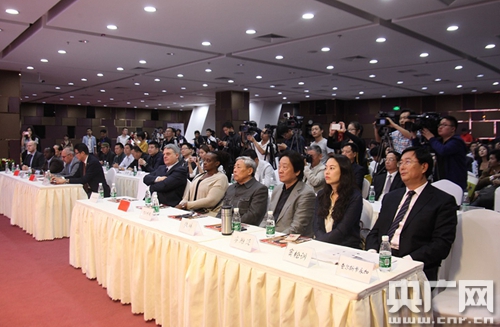China Rejects All Five Requests From The US. It Is Officially Announced That Trump Will Not Come To The Parade.
China Rejects All Five Requests From The US. It Is Officially Announced That Trump Will Not Come To The Parade.
The US has tried to make excuses for Trump's absence through a meeting with the Polish president. At the same time, China has mercilessly rejected five demands. All of the above three requirements show the unilateralism of the United States
It was originally a diplomatic display, but unexpectedly it eventually turned into an embarrassing "rejected" incident. Just as Beijing's September 3rd military parade was about to be held, a sudden news caused a shock to the international community: Trump decided not to attend. This decision shocked the public opinion community. Originally, the US strategy was "If you give me benefits, I will support you", but China's response was five words: "Don't agree."
The US has tried to make excuses for Trump's absence through a meeting with the Polish president. At the same time, China has mercilessly rejected five demands. This game, which originally intended to "visit China for compromise", was declared failure before the abacus beads were moved. Trump's absence not only caused the parade to lose an important diplomatic scene, but also exposed his complete failure in this negotiation.
Trump's original visit to China was not a simple diplomatic visit, but was packaged as a "exchange game" full of transactions. The White House has put forward five major conditions to try to put pressure on China in this way, as if the successful strategies achieved in Japan, South Korea and the EU can be repeated in China. However, China has not accepted this set of rules of the game, and is too lazy to even set up a negotiation table. First of all, the tariff issue raised by the US has become the fuse of this game. The US requires China to accept 10% to 30% tariffs and open zero-tax imports to US goods. This condition directly requires China to give up its competitiveness in global trade and even cede part of its economic sovereignty. China responded without compromise: this requirement is not in line with the basic rules of the World Trade Organization (WTO) and is incompatible with China's own development needs.
Secondly, the US side proposed to force China to purchase a large amount of American-made agricultural products and shale gas, and asked China to stop importing oil from Russia. This not only violates China's energy strategy, but also tries to create division between China and Russia. According to customs data, Russia's oil proportion in China's import structure has reached 21%, and more and more transactions are settled in RMB. This means that the US demands not only make China give up energy security, but also force China to find a way out for the US unsold soybean market.
The third requirement put forward by the US side is even more ridiculous: it requires China to inject hundreds of billions of dollars into the US economy to fill its huge fiscal deficit. The U.S. inflation is seriously out of control, Treasury bonds are frequently sold, and the fiscal situation is worrying. The White House actually hopes that China will "spend its life" for the U.S. However, China's foreign exchange reserves are obviously not prepared for other countries to solve economic problems, especially when the US economic situation is so uncertain.

All of the above three requirements show the US's unilateralism attitude, with a clear purpose: to force China to make concessions through pressure and oppression, so that the US can dominate. China's response is straightforward: we are willing to cooperate, but the premise is equality and respect, and we will never accept additional conditions. Trump originally believed that this visit would force China to make concessions in the negotiations, but the result was counterproductive. He did not realize that this military parade was not just a diplomatic display for China, but an important national ceremony to commemorate the victory of the War of Resistance Against Japan, and no external forces are allowed to intervene.

Putin confirmed his attendance early, and the 28 heads of state responded to the invitation, and the scene was extremely standard. However, Trump declined on the grounds of "conflict of agenda". The actual situation is that the US side chose to "retreat" after finding it difficult to make progress in the negotiations. But for the international community, this kind of "absence" seems particularly embarrassing. It’s not that Trump didn’t want to attend, but that he didn’t have the bargaining chips for negotiations.
A deeper misjudgment is that the US underestimates China's countermeasures. China not only controls rare earth resources, but also occupies a place in the global economy through the RMB and a complete set of de-dollarization methods. In the past, the US had tried to suppress China in the field of high-tech, but it did not expect that China would quickly take countermeasures to restrict rare earth exports, resulting in the suspension of production of US F-35 fighter jets and the entire US military industrial chain almost stagnated. Meanwhile, the settlement ratio of local currency in BRICS countries has risen to 45%, while oil transactions between China and Russia are almost no longer dependent on the US dollar. This shows that China does not rely solely on "pleasing" to maintain the international situation, but steadily advances its global layout through a diversified development strategy.

Not only that, the domestic political pressure faced by Trump has also made this "big bet" more dangerous. Due to the burden of the tariff war, 90% of the costs are ultimately borne by ordinary American families and businesses. Statistics from the Wall Street Journal show that American households spend an additional $831 a year, agricultural states are furious because of the unsalable soybean sales, and large companies such as Apple and Tesla are also lobbying the White House to adopt more moderate policies.

To sum up, Trump's "rejection" trip was not only a failure of his diplomatic plan, but also a microcosm of changes in global order. The US alliance system began to show rifts, the EU and Japan questioned Trump's so-called "favorable agreement", and India even sued the US tariff policy to the WTO. The former allies no longer support the United States unconditionally.

At the same time, China is steadily advancing its international strategy through multilateral cooperation. The entry into force of RCEP has increased China's exports to ASEAN by 11.7%, and the "Belt and Road" project has covered more than 140 countries around the world, showing China's strong influence in the global economy. Even if the United States strives to build a "high wall", China can still achieve sustainable development through its own channels. More importantly, China is no longer a "passive recipient" of global rules, but an active participation in rule-maker. The military parade is not only a commemoration of the history of the War of Resistance, but also a clear signal to the outside world: China has its own historical narrative and security logic and does not accept any tampering.

The United States tried to gain an advantage by "showing muscles through diplomacy", but it lost more points in reality. Trump's absence was not a military parade, but a missed opportunity to reconstruct the global order. China's rejection is not out of emotions, but sends a clear signal that cooperation can be done, but coercion cannot be tolerated. This time, "rejected" not only means that the United States has lost one diplomatic seat, but also means that it has become a "passive" on the global chessboard.

In the long run, short-term compromises may be reached between China and the United States in certain areas, but the basis for inequality negotiations has been completely denied. The global pattern is shifting from "unipolar dominance" to "multipolar co-governance", and the 93rd military parade is a symbol of this change. It not only locks in history but also marks the future. Although Trump was not present, the global landscape is quietly changing. What is changing is not the role, but the rules.





